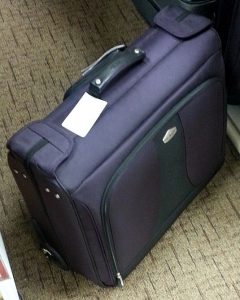As much as we tell businesses and individuals that they need to budget their money in case something comes up, we need to also mention that if you’re a business you need to spend money from time to time for multiple reasons. It’s hard to spend money you don’t have, which is why we talk about budgeting, but it’s important for your business not to be too shy about buying a thing or two here and there.
The biggest reason of course is that you get to write off those expenses when it comes to taxes. This is why we say to keep receipts and track your mileage. As we stated in our previous post, you can still make good money while having your business considered as operating at a loss, and it’s all legal.
What should you be spending your money on? Here are 5 things to consider.
1. Business meals. Networking is the name of the game when it comes to most businesses and a major perk is that you get to write off your meals when you’re doing any sort of business. You get 50% off of any meals you pay for towards your taxes, which means you don’t have to meet potential clients at McDonalds. And if you’re traveling a lot, any meals you buy out of town count as business expenses.
2. Education. There isn’t a business in the world that stays stagnant. Yet the first thing businesses often do is stop training and learning when things get financially tough. That will put you behind your competitors and that’s never a good thing. You get to write off training seminars and materials.
3. Networking. Most businesses have some kind of professional group they can join to either learn more about their business or network with others who are in business for themselves. Chambers of Commerce in your local area are always something to consider, especially if you tend to spend most of your time alone, if only because it not only gives you a reason to get out of the house, but it’s tax deductible. Getting to know other professionals, even if they’re not in your field, is always a good business move.
4. Office equipment. Unless you’re a large business you’re probably not depreciating any of your office equipment, but that doesn’t mean you shouldn’t think about changing things from time to time, especially when you get to write it off. Computers, software, office furniture… sometimes you have to bite the bullet and buy something new, but knowing you get to write it off should lessen the blow somewhat.
5. Clothes or uniforms. There’s no rule that says you have to keep wearing the same thing over and over. Clothes and uniforms sometimes wear out, and since you get to write off the costs of these things it makes sense to update your wardrobe from time to time. You may not be able to write off that Syracuse University t-shirt, but if you buy a couple of dress shirts and maybe a pair of shoes… you’re good to go.


